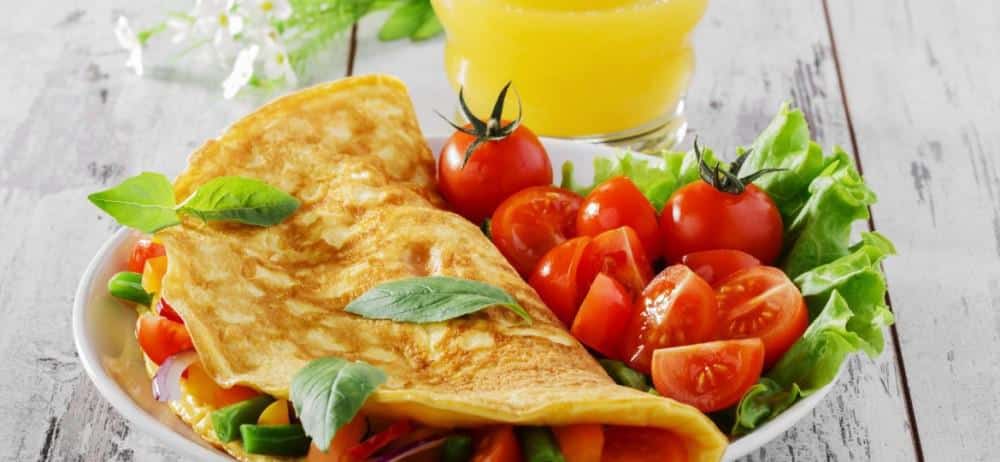
A Good Egg
A Good Egg
When we learned that high blood cholesterol was associated with heart disease, foods high in cholesterol were considered the prime suspect. But after years of study, it is clear that cholesterol in food is not the culprit — saturated fat is.
It’s important to keep in mind that cholesterol in the diet doesn’t necessarily raise cholesterol in the blood. The liver actually produces large amounts of cholesterol every single day. And when we eat more eggs, for example, which have some cholesterol, the liver actually produces less in response. It is the foods of animal origin, such as full-fat dairy products and fatty meats, that are loaded with saturated fat which trigger the body to produce cholesterol.
So with science on our side, we can now enjoy the wonderfully nutritious egg. Along with milk, eggs are the gold standard for protein. There is even research to indicate that making a couple of eggs part of your daily routine could be beneficial. Eggs contain all the essential amino acids in the right ratios, so our bodies are well equipped to make full use of them and their protein. And while most of the protein in an egg is found in the egg white, the fat, vitamins and minerals are found mostly in the egg yolk. Egg yolks are also a good source of Vitamin D- who knew?
HOW TO CHOOSE WHICH EGGS TO BUY
Now, what we eat matters, but it also matters what the foods we eat, ate. And not all eggs are created equally— their nutritional value depends on how the hens were fed and raised. So how do we choose the most nutritious eggs to buy? Consider this…
Brown vs White
Chickens with white feathers typically lay white eggs and chickens with brown feathers typically lay brown eggs. There happen to be certain chickens that lay speckled eggs or blue eggs. But the color of the shell does not have a bearing on its nutritional value. Period. Brown eggs may be more expensive, however. Why? Size. The chickens that lay brown eggs may be larger than those that lay white eggs and thus their feed costs more. As a result, the brown eggs are priced higher.
Mellow Yellow vs Vibrant Orange
Some people say that brown eggs have a yolk that’s more richly colored than white eggs. In fact, it is the type of feed that chickens eat that determines the color of the yolk. So the more corn or soy they are fed, the yellower and lighter the yolks. Not as desirable. When chickens have the opportunity to forage for their own food outdoors, pecking through cow dung for grass and bugs, the yolks are richer, darker and more orange. Many local farmers or Farmer’s Markets carry such eggs.
Omega-3-Enriched
This means hens were fed feed with an increased amount of omega-3-rich flaxseeds. However, pasture-raised hens are already higher in beneficial omega-3’s, and they get to be outside. Technically, caged hens could also be fed flax feed, so we can’t equate this label with better living standards. Omega-3s are more commonly lacking in the eggs from “battery hens,” and some companies have specially formulated their chicken feed in an attempt to make up for the hen’s abnormal and unnatural living conditions.
Organic vs Conventional
A USDA-certified organic label means the eggs came from hens that were not enclosed in battery cages, and that must be offered access to the outdoors. However, this doesn’t guarantee that the animals ever go outside. Organic eggs also come from hens that were fed certified organic feed, free of antibiotics, pesticides, and other animal products— important!
Free-Range or Cage-Free
Free-range can simply mean that the hens have “access” to the outside for a minimum of five minutes a day. They may not even choose to go outside, when offered, and when they do, they may simply be walking out onto a concrete slab. The cage-free label means that rather than being crammed into cages stacked on top of each other, hens are cage-free. They may still be confined indoors, never seeing the light of day. While this is less than ideal, at least this setup gives animals a chance to spread their wings and lay eggs in nest boxes, which is closer to their natural behavior.
Pastured Poultry
This is a sustainable agricultural technique that calls for the raising of laying chickens, meat chickens (broilers), and/or turkeys on pasture, as opposed to indoor confinement. Humane treatment and the perceived health benefits of pastured poultry are causing an increase in demand for such products.
Natural and United Egg Producers Certified
These are the most misleading claims made on an egg carton. While forced molting is prohibited under this certification, debeaking is allowed, along with other cruel and inhumane practices, such as the use of battery cages.
Your best bet is to buy eggs from pastured hens from local farms that raise the hens organically, ensuring they’re not exposed to pesticides, animal by-products, or antibiotics. You may even be able to find them at your local Farmer’s Market or on Craig’s list— let’s stock up!
